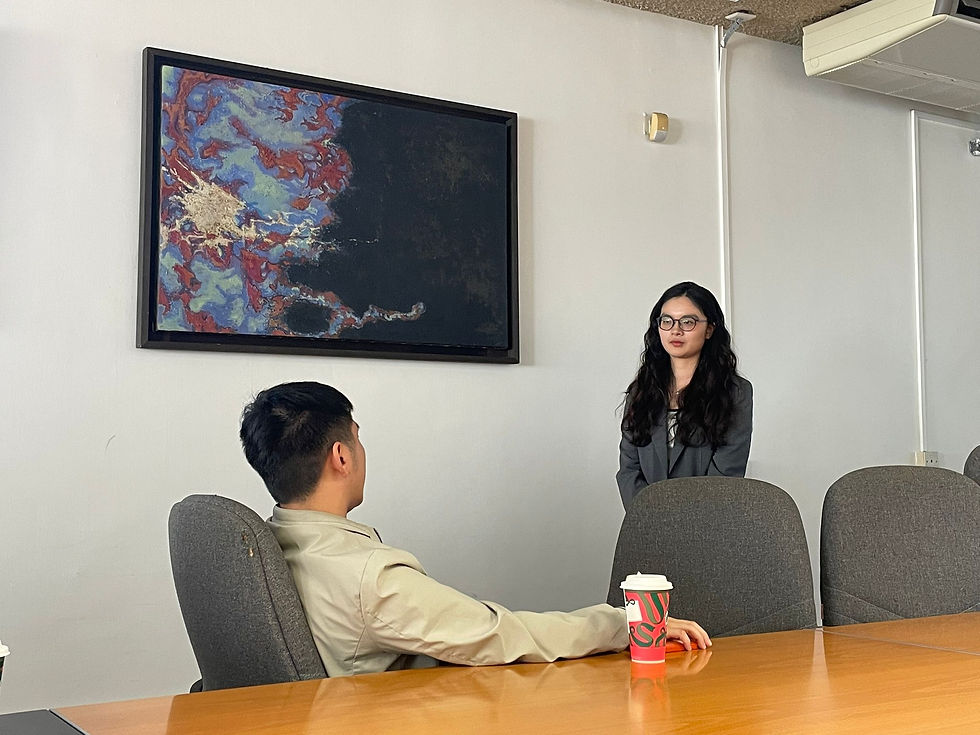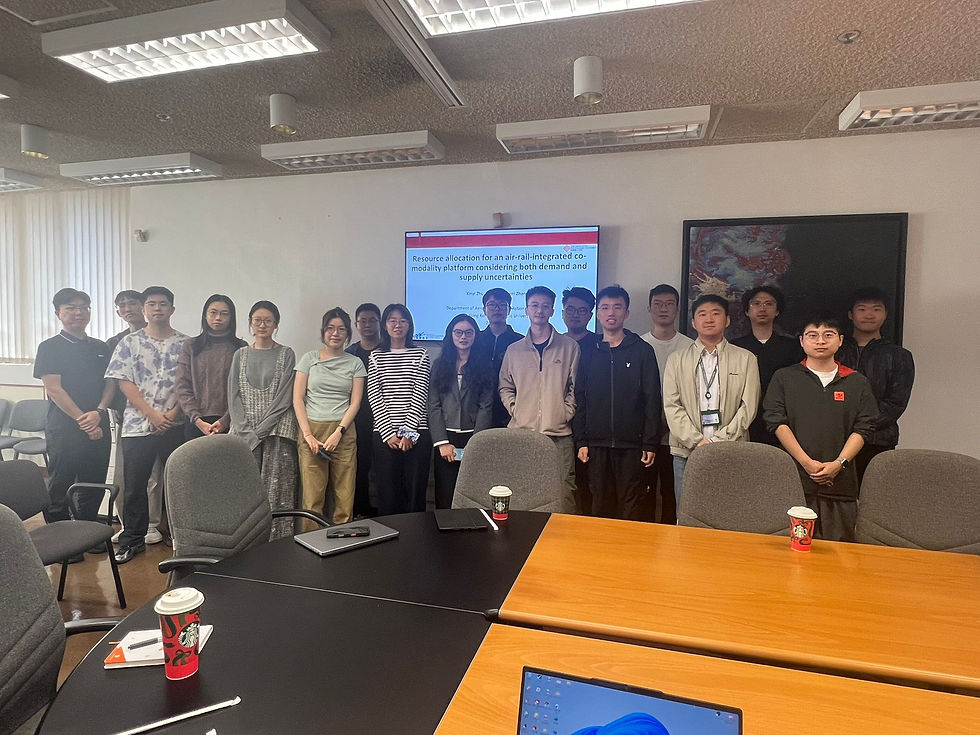Title: Resource allocation for an air-rail-integrated co-modality platform considering both demand and supply uncertainties
Speaker: Ms. Xinyi Zhu (Department of Aeronautical and Aviation Engineering, Hong Kong Polytechnic University)
Date: Nov 26, 2025 (Wednesday)
Time: 1:00 pm - 2:00 pm
Venue: Room 8-28, Haking Wong Building, The University of Hong Kong
Registration Link: https://forms.office.com/r/1nLK1SMMHh
ITS Student Committee will provide light refreshments and drinks for registered participants.
Abstract: The co-modal mode, i.e., passenger-and-freight mixed transportation, has received increasing interest, given the rapid growth of parcel volume and its potential to save transportation costs. This paper examines an air-rail-integrated co-modal mode that utilizes the excess capacity of passenger trains and flights considering uncertainties in both supply and demand. On the supply side, uncertainty arises from travel time delays of passenger trains and flights. On the demand side, while historical data on cargo orders are available, such as volume distribution between each origin and destination pair, the daily cargo orders/demands remain uncertain and will be revealed in real-time. We aim to dynamically allocate these resources (excess capacity of trains and flights) to serve cargo orders while effectively accommodating uncertainties. To address this problem, a two-stage stochastic programming model is developed to minimize the total costs associated with cargo transportation, holding, transshipment, delays, and ad-hoc service options (when the co-modal mode is unavailable). The sample average approximation solution approach, embedded with an adaptive large neighborhood search algorithm, is employed to solve the problem. The above model and algorithm are implemented in a rolling horizon framework to make time-dependent resource allocation decisions. The test instances are generated based on rail and air transportation data in Hong Kong (with Hong Kong West Kowloon Station and Hong Kong International Airport). Numerical studies and sensitivity analysis are conducted to evaluate (i) the benefits of the air-rail-integrated co-modality, (ii) the effectiveness of the proposed solution algorithm, and (iii) the impact of demand/supply characteristics on the air-rail-integrated co-modality operation.
Bios: Xinyi Zhu is a third-year Ph.D. candidate in the Hong Kong Polytechnic University. She had previously received her master's degree from Shanghai Jiao Tong University in 2023 and her bachelor's degree from Dalian Maritime University in 2020. Her research centers on transportation modeling, with a particular focus on multimodal transport network design under uncertainty. Her research has been published in transportation journal such as Transportation Research Part C, and has presented her work at major international conferences, including POMS International Conference in China (POMS China), the International Conference of the Hong Kong Society for Transportation Studies (HKSTS), and the Air Transport Research Society (ATRS) World Conference.















